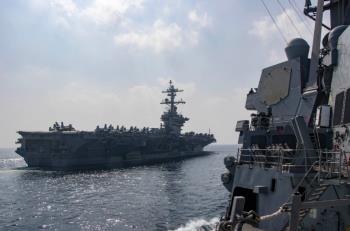Alwaght- The extent of the massacre of Shiite Muslims in Nigeria last year is now being revealed with Amnesty International reporting that Nigerian military burned people alive, razed buildings and dumped victims’ bodies in mass graves.
In a report released on Friday, the UK-based rights body said that the Nigerian army killed over 350 members of the Islamic Movement of Nigeria ,IMN, and tried to meticulously destroy evidence of the crime by burying the victims in mass graves and limiting access to conflict sites in the city of Zaria, Kaduna State. Amnesty says there was mass slaughter of hundreds of men, women and children by soldiers in Zaria and the attempted cover-up of this crime demonstrates an utter contempt for human life and accountability.
On December 12, Nigerian soldiers attacked Shia Muslims attending a ceremony at a religious center in Zaria, accusing them of blocking the convoy of the army’s chief of staff and attempting to assassinate him.
A day later, Nigerian forces raided the home of the IMN leader Sheikh Ibrahim Zakzaky,, and arrested him after killing those attempting to protect him.
Both incidents led to the deaths of hundreds of members of the religious community, including three of Zakzaky’s sons. Some sources have put the toll at over 1,000.
“The true horror of what happened over those two days in Zaria is only now coming to light. Bodies were left littered in the streets and piled outside the mortuary. Some of the injured were burned alive,” said Netsanet Belay, Amnesty International’s Research and Advocacy Director for Africa. “Our research, based on witness testimonies and analysis of satellite images, has located one possible mass grave. It is time now for the military to come clean and admit where it secretly buried hundreds of bodies.” More than 350 people are believed to have been unlawfully killed by the military between 12 and 14 December, following a confrontation between members of the Islamic Movement of Nigeria (IMN) and soldiers in Zaria, Kaduna state. IMN supporters - some armed with batons, knives, and machetes - had refused to clear the road near their headquarters, the Hussainiyya, for a military convoy to pass. The army has claimed that IMN supporters attacked the convoy in an attempt to assassinate the Chief of Army Staff. IMN members deny this. Following an initial confrontation the military surrounded other locations where IMN supporters had gathered, notably at the residential compound of IMN leader Ibrahim Al-Zakzaky. Some people were killed as a result of indiscriminate fire. Others appeared to have been deliberately targeted.
All available information indicates that the deaths of protesters were the consequence of excessive, and arguably, unnecessary use of force. After the incident the military sealed off the areas around al-Zakzaky’s compound, the Hussainiyya and other locations. Bodies were taken away, sites were razed to the ground, the rubble removed, bloodstains washed off, and bullets and spent cartridge removed from the streets. Witnesses saw piles of bodies outside the morgue of Ahmadu Bello University Teaching Hospital in Zaria. A senior medical source told Amnesty International that the military sealed off the area around the morgue for two days. During that time he saw army vehicles “coming and going”. A witness described to Amnesty International what he saw outside the hospital mortuary on the evening of 14 December: “It was dark and from far I could only see a big mound but when I got closer I saw it was a huge pile of corpses on top of each other. I have never seen so many dead bodies. I got very scared and run away. It was a terrible sight and I can’t get it out of my mind.”
IMN leader Al-Zakzaky and his wife Zeinat Al-Zakzaky were arrested and held incommunicado. They were only allowed access to their lawyer for the first time on 1 April 2015, three and a half months after their arrest.
Amnesty International has joined other rights groups in calling for those IMN supporters charged in connection with this incident to be tried promptly and fairly and for those still held in detention without charge to be either immediately charged or released.
Meanwhile Lawyers for the detained leader of Nigeria's Islamic Movement and his spouse have filed an application to the country's High Court in a bid to secure their immediate release.
The applications seek declarations that Sheikh Ibrahim Zakzaky and his wife Zeenat have seen their constitutional and legal rights violated.
Recently the London-based Islamic Human Rights Commission referred the events in Zaria to the International Criminal Court asking it to open a preliminary war crimes investigation into the December 2015 massacre.



























